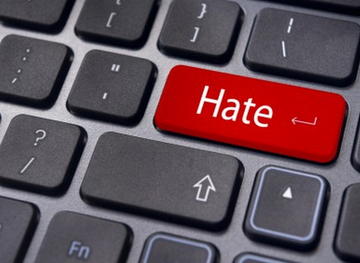
cartadiroma.org and the European Federation of Journalists launched the European campaign #nohatespeech, with a petition banning the promoters of online hate speech
Link: European Federation of Journalists
Banning the promoters of online hate speech and preventing broadcast thereof are not simply acts of civic responsibility. For journalists, this is the fulfilment of a basic duty: giving readers, viewers and listeners real facts. This is why the Italian organisation Associazione Carta di Roma, with the support of the European Federation of Journalists (EFJ), Articolo 21, the National Federation of the Italian Press (FNSI), the Italian Order of Journalists and the Journalists’ Union RAI (USIGRai), has launched the #nohatespeech campaign.
The online petition is directed to different categories and invites each potential contributor to act against hate speech:
Journalists – Don’t be passive in front of hate speech cases. Since they are based on racism (bigotry/prejudice/ discrimination), hate speeches cannot be considered just opinions: they are a distortion of reality, against the basic principles of a civilized cohabitation and against science. Discrediting racist statements and clarifying why they are misleading constitutes a duty for journalists.
Readers, Viewers, Listeners – Isolate the hate promoters: don’t converse with them, even if you want to express your indignation. Avoid any act which could legitimate them. Report hate speech cases to the competent editorial and social media managers, in order for them to remove the inappropriate posts, to ban their authors and, where appropriate, to refer them to authorities for legal action.
Media and Publishers – Apply online moderation procedures, in order to quickly remove hate speeches and to ban their authors.
Social networks managers and administrators – Create simplified procedures to manage the posts, helping media and users to report and remove hate speeches.
The petition can be read and signed here (English and Italian versions available).
This publication has been produced within the project European Centre for Press and Media Freedom, co-funded by the European Commission. The contents of this publication are the sole responsibility of Osservatorio Balcani e Caucaso and its partners and can in no way be taken to reflect the views of the European Union. The project's page

 European campaign against hate speech
European campaign against hate speech




 All the contents on the Osservatorio Balcani e Caucaso website are distributed with a
All the contents on the Osservatorio Balcani e Caucaso website are distributed with a 